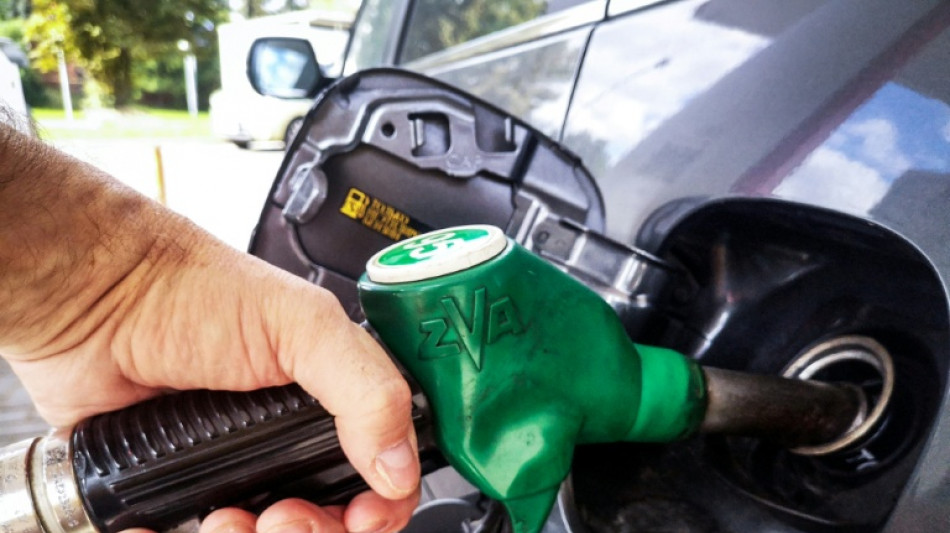
-
 Prince Harry meets King Charles for first time since 2024
Prince Harry meets King Charles for first time since 2024
-
Veteran Vardy ready to silence doubters in Cremonese adventure

-
 Speckled Martian rocks 'clearest sign' yet of ancient life
Speckled Martian rocks 'clearest sign' yet of ancient life
-
Ex-France goalkeeper Mandanda calls time on club career

-
 'Anguish' as Cuba plunges into new electricity blackout
'Anguish' as Cuba plunges into new electricity blackout
-
Martian rocks offer clues that might indicate ancient life

-
 Musk's title of richest person challenged by Oracle's Ellison
Musk's title of richest person challenged by Oracle's Ellison
-
New French PM vows 'profound break' with past as protests flare

-
 Kuldeep stars as India crush UAE in Asia Cup T20
Kuldeep stars as India crush UAE in Asia Cup T20
-
Bolsonaro judge criticizes trial, warns of 'political' verdict
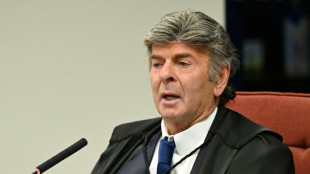
-
 Italy's Pellizzari scorches to Vuelta stage 17 honours
Italy's Pellizzari scorches to Vuelta stage 17 honours
-
Italy to remain top wine producer in world: 2025 estimates

-
 400-year-old Rubens found in Paris mansion
400-year-old Rubens found in Paris mansion
-
Pellizzari takes Vuelta stage 17 honours

-
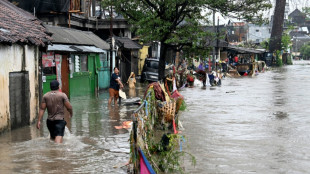 Deadly floods inundate Indonesia's Bali and Flores islands
Deadly floods inundate Indonesia's Bali and Flores islands
-
Gravitational waves from black hole smash confirm Hawking theory

-
 Israel launches deadly strike on Yemen rebel media arm
Israel launches deadly strike on Yemen rebel media arm
-
Fossil energy 'significant' driver of climate-fuelled heatwaves: study

-
 Oldest known lizard ancestor discovered in England
Oldest known lizard ancestor discovered in England
-
Smoke from 2023 Canada fires linked to thousands of deaths: study
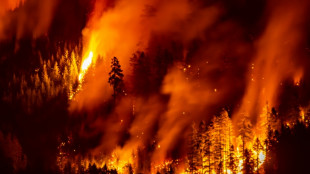
-
 Software company Oracle shares surge more than 35% on huge AI deals
Software company Oracle shares surge more than 35% on huge AI deals
-
UK aims to transform Alzheimer's diagnosis with blood test trial

-
 US Senate panel advances nomination of Trump's Fed governor pick
US Senate panel advances nomination of Trump's Fed governor pick
-
Israeli strikes shake quiet Qatar, strain US ties

-
 Russian drones in Poland put NATO to the test
Russian drones in Poland put NATO to the test
-
Emotional Axelsen well beaten on return from six months out

-
 US producer inflation unexpectedly falls in first drop since April
US producer inflation unexpectedly falls in first drop since April
-
Viking ships make final high-risk voyage to new Oslo home

-
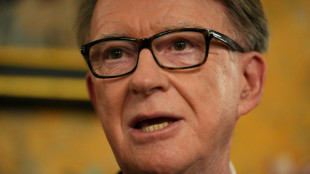 UK PM expresses 'confidence' in ambassador to US after Epstein letter
UK PM expresses 'confidence' in ambassador to US after Epstein letter
-
Belgium seeks US help in drug trafficking fight
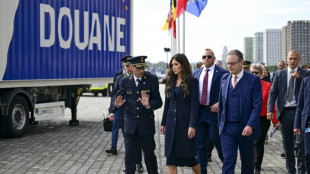
-
 Spain PM's wife denies embezzlement in fresh court hearing
Spain PM's wife denies embezzlement in fresh court hearing
-
Stock markets strike records despite geopolitical unrest

-
 Spain to deploy 'extraordinary' security for Vuelta finale
Spain to deploy 'extraordinary' security for Vuelta finale
-
Ex-Premier League referee Coote charged with making indecent child image

-
 Ryder Cup pairings not 'set in stone', says Europe captain Donald
Ryder Cup pairings not 'set in stone', says Europe captain Donald
-
What we know about Israel's attack on Hamas in Qatar

-
 Australia Davis Cup captain Hewitt handed ban for pushing anti-doping official
Australia Davis Cup captain Hewitt handed ban for pushing anti-doping official
-
New French PM vows 'profound break' with past to exit crisis
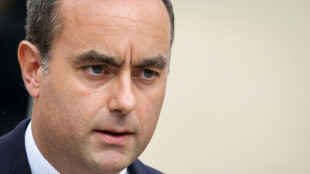
-
 Israel vows to strike foes anywhere after Qatar attack
Israel vows to strike foes anywhere after Qatar attack
-
Kony defence urges ICC judges to halt case

-
 British horse racing strikes over proposed tax rise on betting
British horse racing strikes over proposed tax rise on betting
-
Zara owner Inditex shares soar as sales growth revives

-
 Poland calls urgent NATO talks after Russian drone incursion
Poland calls urgent NATO talks after Russian drone incursion
-
Three dead, three missing in attempts to cross Channel
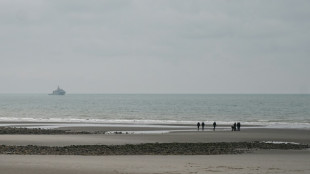
-
 Hong Kong legislature rejects same-sex partnerships bill
Hong Kong legislature rejects same-sex partnerships bill
-
Von der Leyen urges EU to fight for place in 'hostile' world
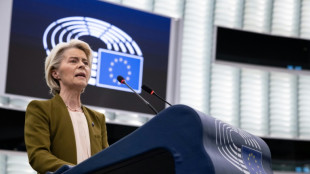
-
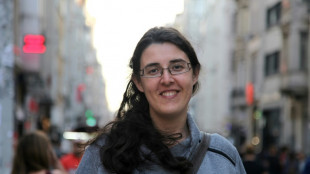 Kidnapped Israeli-Russian academic Tsurkov released in Iraq
Kidnapped Israeli-Russian academic Tsurkov released in Iraq
-
Syrian jailed for life over deadly knife attack at German festival

-
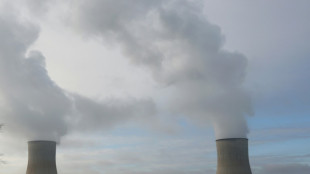 Top EU court upholds nuclear green label
Top EU court upholds nuclear green label
-
Pacific Island leaders back 'ocean of peace' at fraught summit
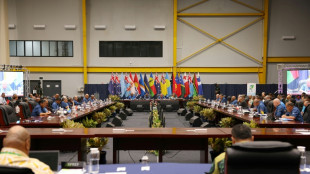

Fossil energy 'significant' driver of climate-fuelled heatwaves: study
Fossil fuel and cement producers have contributed "significantly" to the growing number and intensity of climate-change-driven heatwaves, according to a study published on Wednesday in Nature.
An international team of scientists analysed more than 200 heatwaves around the world between 2000 and 2023 and found that climate change had made each of them more likely and more ferocious.
But they also took their attribution study one step further by teasing out the role of 180 major producers of polluting oil, gas, coal and cement.
They found emissions linked to these large companies contributed half of the increase in heatwave intensity compared to the pre-industrial era and also increased their probability.
The role of the 14 largest "carbon majors" -- including Saudi Aramco, Gazprom, Chevron and BP -- appears to be very significant, weighing as much as the 166 other companies studied.
The pollution from these firms has essentially been large enough to spark heatwaves, researchers said.
"Each producer alone can be enough to make heatwaves possible that would have been virtually impossible without climate change," said Yann Quilcaille of ETH Zurich, who led the study published in Nature.
Attribution studies generally measure the degree of influence of climate change on a particular extreme weather event.
To do this, scientists compare the current climate with a simulation of a climate that has not been warmed by human activities.
The latest study expanded the scope to a total of 213 heatwaves.
Researchers found that the influence of climate change had grown over time: it made heatwaves on average 20 times more likely between 2000 and 2009 and 200 times more likely from 2010 to 2019.
A quarter of the events studied (55 out of 213) were at least 10,000 times more likely. In other words, they would have been virtually impossible without global warming.
"We also show that emissions associated with the largest producers of fossil fuels and cement contribute significantly to heatwaves," Quilcaille told AFP.
Emissions from just one of these carbon majors would have been enough to cause events deemed 10,000 times more likely, they found.
- 'Leap forward' -
The authors took into account the entire value chain of the companies as well as the use of the products by customers. For example, they attributed to each oil group the emissions associated with the petrol it sold.
Pascal Yiou, from France's Laboratory for Climate and Environmental Sciences (LSCE), who was not involved in the study, told AFP it was "a summary of the current state of knowledge in heatwave attribution", playing down the effort to attribute the role of major polluters.
But Quilcaille said the study could aid corporate responsibility legal cases, which have not so far been able to draw on increasingly precise research linking carbon emissions with specific events.
In one, a Peruvian farmer sued German energy company RWE, accusing it of being indirectly responsible for the melting of a glacier near his home. In May, a German court rejected the case but recognised the principle of polluters' global responsibility for climate damage.
In a commentary published in Nature, Karsten Haustein, of the University of Leipzig, said the new research was a "leap forward" for climate litigation and diplomacy.
"It is another reminder that denial and anti-science rhetoric will not make climate liability go away, nor will it reduce the ever-increasing risk to life from heatwaves across our planet," said Haustein, who was not involved in the study.
K.Sutter--VB
